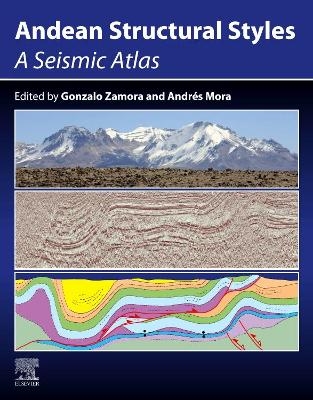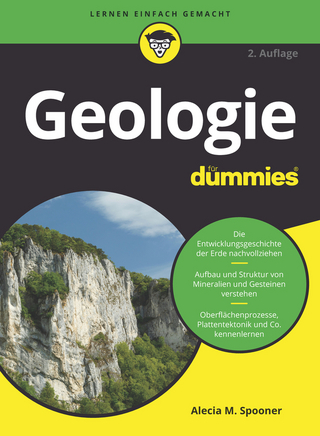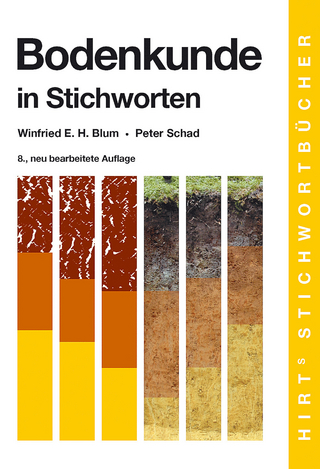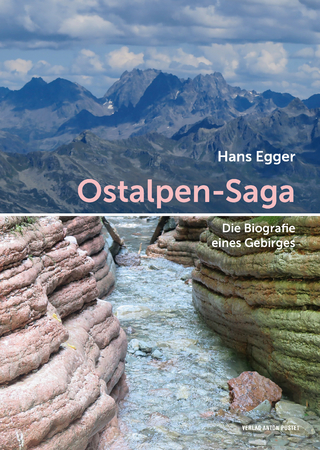
Andean Structural Styles
Elsevier - Health Sciences Division (Verlag)
978-0-323-85175-6 (ISBN)
Andean Structural Styles: A Seismic Atlas covers topics including fold types, thrust faults, triangle zones, inversion structures, synorogenic deposits, and growth stratal geometries. These topics are illustrated by thirty-two seismic examples interpreted and uninterpreted, covering most of the Andean basins, and five chapters reviewing the structural styles of the Andes, the complexity of processing seismic in these settings, how analogue models help in the interpretation, and several outcrop analogues. This reference is invaluable to both hydrocarbon exploration of the Andes and researchers and students in the fields of exploration geology and structural geology. Also, those teaching structural geology and seismic interpretation will find a valuable resource with lots of uninterpreted seismic examples that can be used in their lectures.
Gonzalo Zamora is Structural Geology and Tectonics Manager at Repsol with over 18 years of experience in the oil industry. He holds a PhD in Structural Geology and MSc in Tectonics. He has 14 years of experience working in the Andes of Argentina, Bolivia, and Peru, and is familiar with the geology of Ecuador and Colombia. Dr. Zamora has published several papers in international journals and books, and is the editor of the AAPG Memoir 117 “Petroleum Basins and Hydrocarbon Potential of the Andes of Peru and Bolivia, and the SP490 “Fold and Thrust Belts: Structural Style, Evolution, and Exploration of the Geological Society of London. As part of the Structural Geology Specialist Group at Repsol, he also has experience in Spain, the Gulf of Mexico, Brazil, Morocco, The Urals (Russia), and Ireland. Andrés Mora is Regional Studies Leader at Ecopetrol Brazil. He holds a PhD in Geology and has over 20 years of experience in the oil industry, mostly as a structural and exploration geologist, focusing on areas including the Andes of Colombia, Ecuador, and Perú, and offshore Brazil. He has published several papers in international journals and books and has edited a number of special issues for the AAPG and books for the Geological Society of London.
SECTION 1: Introduction 1. Tectonic inheritance and structural styles in the Andean fold-thrust belt and foreland basin 2. Seismic imaging in fold-and-thrust belts 3. Analogue modeling as a tool to assist seismic structural interpretation in the Andean fold-and-thrust belt
Section 2: Field analog 4. Folding of a weak boundary zone between an axial and a frontal belt, Chicamocha Valley, Eastern Cordillera of Colombia 5. Natural examples of regional-scale structures from the southern Central Andes and Patagonian Andes 6. Outcrop-scale natural examples of structures from the southern Central Andes
SECTION 3: Colombia 7. Thrust sequence in the Sinu Fold Belt (South Caribbean Deformed Belt), offshore northwest Colombia 8. Relationships between normal faulting, mud diapirism and thrusting in the trailing part of the Sinú Fold Belt (South Caribbean Deformed Belt), offshore northwestern Colombia 9. Strike-slip fault zone in an oblique convergent margin. Bahia Basin Caribbean margin of Northern Colombia 10. Structural styles of the Upper Magdalena Valley, Northern Andes, Colombia: case studies 11. Forelimb deformation in basement uplifts. Examples from the Sierra de la Macarena, Colombia 12. Seismic expression of structural styles of transpressional thick skin deformation in the southern foothills of Colombia. 13. Structural styles and evolution of the Colombian Eastern Foothills Piedemonte triangle zone 14. Seismic and structural analysis of the San Francisco oil field (Colombia). Structural controls on a complex hydrocarbon charge history 15. La Cira Basement-high; Middle Magdalena Valley Basin, Colombia 16. Regional Structure, Trap Mechanisms and Basin Evolution of the Middle Magdalena Basin of Colombia 17. Structural Styles of the Southern Putumayo Basin, Northern Andes, Colombia
SECTION 4: Ecuador 18. An appraisal of basin development at the trailing edge of the Northern Andes, SW Ecuador – NW Peru 19. The Manabí and Esmeraldas-Borbón forearc basins of Ecuador
SECTION 5: Peru 20. Situche Complex, Marañon Basin. Peru 21. Large transport thrust in the Huallaga Basin (Northern Peruvian Sub-Andean Zone) 22. The San Martín anticline: a classic example of a fault-bend fold in the Camisea fold and thrust belt, Central Andes, Perú 23. The Sagari-Kinteroni Anticline: An Example of an Out-of-Sequence Tectonic Wedge in the Camisea Area, Peru 24. The Candamo antiformal stack, Madre de Dios Basin, Peru
SECTION 6: Bolivia 25. Fault-related fold evolution in the Northern Sub-Andean of Bolivia 26. Transition from thin- to thick-skinned tectonics: example from the Boomerang Hills, Bolivia 27. Structural interpretation in the bolivian southern subandean: from surface to prospect generation 28. Seismic Interpretation challenges in the southern subandean fold and thrust belt of Bolivia 29. Thin Skinned Fold Belt Structural Style in the Argentinean-Bolivian Subandean Foothills, the Madrejones Anticline Example
SECTION 7: Argentina 30. Structural styles of the Villa Unión-San Isidro basement-involved fold and thrust belt, Northern Ischigualasto-Villa Unión Basin province of La Rioja, Argentina 31. Structural styles, tectonic evolution and petroleum systems of transverse pre-Andean structures: examples from the Cuyo and Neuquén basins 32. Structure beneath the southern Payenia volcanic field, Neuquén Basin, Argentina. 33. Structural development in the frontal Malargüe fold and thrust belt, Neuquén Basin, Argentina 34. Interpreting a complex Triangle Zone in the Agrio Fold Thrust Belt, Neuquén Basin. Argentina 35. Exploration in a thick to thin-skinned transition, Falla Plegada Triangle Zone, Neuquen, Argentina 36. Foothills structure of the Andes of Tierra del Fuego, Argentina and Chile
SECTION 8: Chile 37. Inverted structures in the western Central Andes thrust belt front 38. Interaction between Inverted and basement-involved reverse faults in the inner forearc of the Central Andes: an example from the Salar de Atacama Basin
| Erscheinungsdatum | 29.04.2022 |
|---|---|
| Zusatzinfo | Approx. 250 illustrations (250 in full color); Illustrations |
| Verlagsort | Philadelphia |
| Sprache | englisch |
| Maße | 216 x 276 mm |
| Gewicht | 1430 g |
| Themenwelt | Naturwissenschaften ► Geowissenschaften ► Geologie |
| ISBN-10 | 0-323-85175-4 / 0323851754 |
| ISBN-13 | 978-0-323-85175-6 / 9780323851756 |
| Zustand | Neuware |
| Haben Sie eine Frage zum Produkt? |
aus dem Bereich


